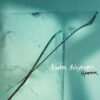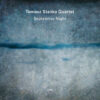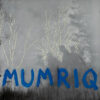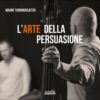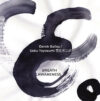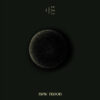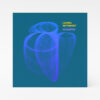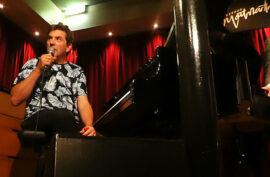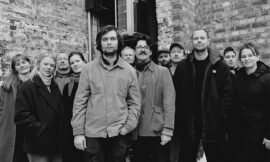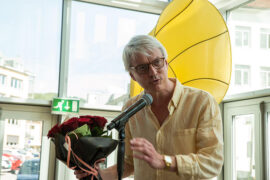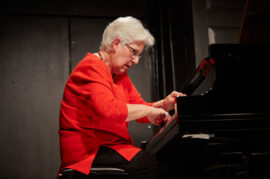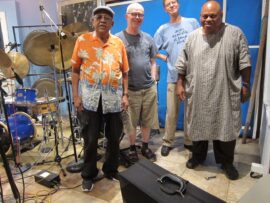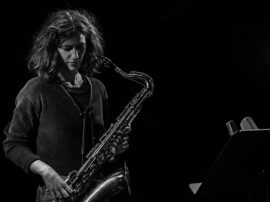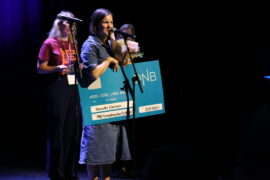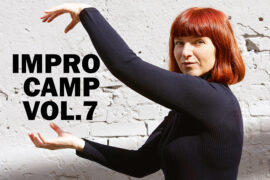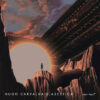
Portuguese double bass player-composer Hugo Carvalhais likes to think of his albums as clouds. Not the visible ones, but those that endow a sense of mystery to the skies, leading us to believe that there are gods atop a Greek mountain or aliens that exist beyond a Nebula. Ascetica is the fourth album in a series of five albums of Carvalhais as bandleader and composer, documenting his life and musical journeys, now focusing on the inner journey. But you can say that Carvalhais is interested in the fleeting moments of our lives, when something magical happens, without us realizing where they come from.
Carvalhais, who adds electronics to the double bass relies on a core band of fellow-Portuguese keyboards player Gabriel Pinto, who co-composed with him three pieces, and drummer Mário Costa, who played on all his solo albums since «Nebulosa» (Clean Feed, 2010. Costa, did not play on the chamber «Grand Valis», Clean Feed, 2015). The core band is augmented by a front line of reeds players – French Émile Parisien on soprano sax (who played in Carvalhis’ «Particula», Clean Feed, 2012), Lithuanian on tenor sax and clarinet player Liudas Mockūnas and French-Portuguese Fábio Almeida on alto sax and flute. It is clear that Carvalhais knows how to produce many kinds of magic with these resourceful musicians.
The ten pieces are in search of these magical moments, when Carvalhais pushes his sextet, as a collective and as six strong musical personalities, outside of their comfort zones and familiar courses. His own subtle use of electronics, with Pinto’s otherworldly playing on the organ and synthesizer, and, often, the chamber choir of the reeds players distance the musical envelope from common genre pitfalls. Then, when the sextet sounds as searching for its way and taking more risks than recommended, it actually finds enigmas, beauty, fear, wonder, light and darkness, and soars higher and higher into mysterious clouds and arresting, unchartered territories.
But, throughout these sonic journeys, Carvalhais’ double bass is at the center – anchoring, orientating, guiding and defining the delicate commotion, always in a telepathic connection with drummer Costa. And, as guitarist Gonçalo Falcão observed in his liner notes, Carvalhais knows to find the right balance between indefinite and abstract moments seemingly Wagnerian moments, where beautiful melodies gracefully resolve a series of different proposals, conversations and tensions that emerge from the music.
Eyal Hareuveni
Hugo Carvalhais (b, elec), Émile Parisien (ss), Liudas Mockūnas (ts, cl), Fábio Almeida (as, fl), Gabriel Pinto (p, org, synth), Mário Costa (dr)

